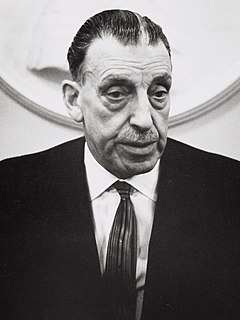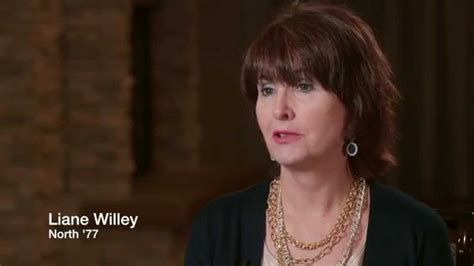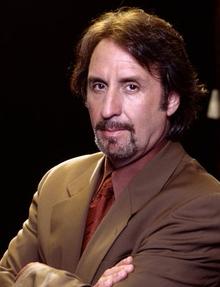A Quote by Ben Rhodes
I think one of the critiques of me is that I thought I knew it all. But I was learning from the enormous resources available within the U.S. government who have a very different view of the world than many of the people commenting on foreign policy from outside of the government.
Related Quotes
A famous, very often quoted phrase says: "That government is best, which governs least." I do not believe this to be a correct description of of the functions of a good government. Government ought to do all the things for which it is needed and for which it is established. Government ought to protect the individuals within the country against the violent and fraudulent attacks of gangsters, and it should defend the country against foreign enemies. These are the functions of government within a free system, within the system of the market economy.
For my generation the relationship with Europe was the central point of American foreign policy. Even during my time in government there was disagreement, sometimes very strong disagreement. But they were all like arguments within a family. I am not sure if the generation which doesn't have these experiences has the same view of things.
The people and the warmakers are two distinct groups. We must never say 'we' when discussing the US government's foreign policy. For one thing, the warmakers do not care about the opinions of the majority of Americans. It is silly and embarrassing for Americans to speak of 'we' when discussing their government's foreign policy, as if their input were necessary to or desired by those who make war.
Apologists for activist government never tire of telling us that the
benevolent state is our protector and that without it wed be at the mercy of
monsters. It is about time that we understood that the U.S. government does
more to endanger the American people than any imagined monsters around the
world…by pursuing its Grand Foreign Policy of meddling anywhere and
everywhere.
RTE was set up by legislation as an instrument of public policy, and, as such is responsible to the government. The government have overall responsibility for its conduct, and especially the obligation to ensure that its programmes do not offend against the public interest or conflict with national policy as defined in legislation. To this extent the government rejected the view that RTE should be, either generally or in regard to its current affairs programmes, completely independent of government supervision.
Can I say one other thing that`s very important? I`m indebted to Donald Trump for a long time, we`ve had this problem that people disliked government. And the health care bill has shown reminded people and Donald Trump has shown people there is something a lot worse than government. It`s not government. That as bad as they might have thought the government was on health care, it`s now created people that the absence of government healthcare is even worse.
American press, like the press in many countries, acts like a cheerleader to our government rather than a critical observer. This is especially true, when it comes to foreign interventions. That means that when government leaders conclude that intervention in a foreign country is justified, the press rarely criticizes it. In fact, the press has been an enthusiastic cheerleader for many of our foreign interventions.
As the wealthiest country with all the blessings that we have, do we have an obligation to help the outside world? I think we do, as we have an obligation to help everyone within our own borders. The problem is that this automatically gets translated into: "What's the point of having a huge military if we can't bomb people?" That's the problem that I have. Our foreign policy is essentially our defense policy.
The view that we know less than we thought we knew about how to change the human condition came, in time, to be called neoconservatism. Many ... , myself included, disliked the term because we did not think we were conservative, neo or paleo. (I voted for John Kennedy, Lyndon Johnson and Hubert Humphrey and worked in the latter's presidential campaign.) It would have been better if we had been called policy skeptics; that is, people who thought it was hard, though not impossible, to make useful and important changes in public policy.




































